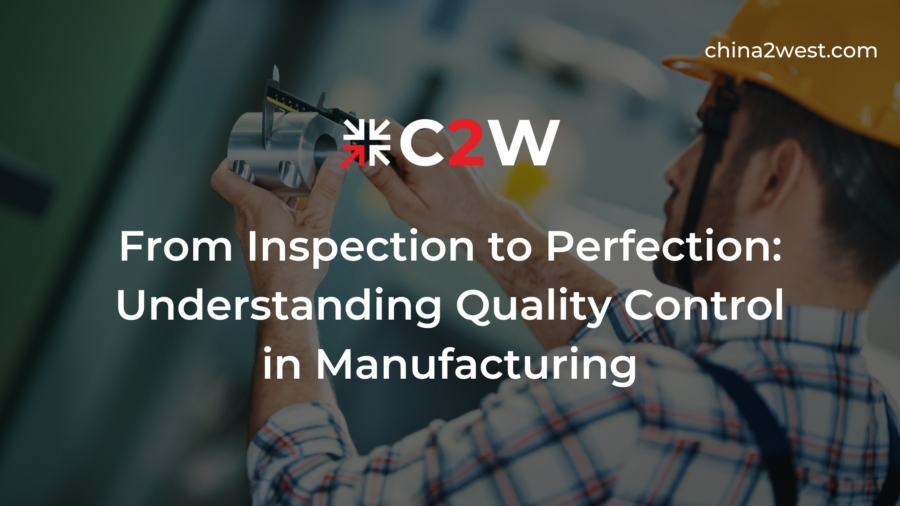Whatever product you sell, ensuring they’re high-quality is vital. As many as a third of consumers say that the quality of products now is more important than it was a year ago.
These days, people can get products far more easily than in the past. As such, you need to show that your products are better than those of your competitors if you want to stay ahead.
Consumers place a lot of value on quality, so you want to create products that exemplify this. Quality control in manufacturing can help you ensure you have the best products on the market, and it can also provide several other benefits.
In this guide, we’ll go over everything you need to know about quality control in manufacturing. Keep reading for more.
What Is Quality Control?
Quality control (QC) is an essential part of the manufacturing industry. It’s a process that ensures products meet a certain standard of quality to help maintain customer satisfaction.
For effective QC, a company needs to create a work environment in which managers and employees all strive to produce the best work possible. This involves establishing quality benchmarks, training personnel, and testing product variations.
One of the most important elements of quality control is establishing well-defined controls. These ensure standards that all products must meet in terms of production and quality.
Having these controls in place limits room for error. Specific employees can be assigned to certain tasks. This ensures they have a solid understanding of the exact standards they’re maintaining, while also not interfering with other aspects.
The Importance of Quality Control
Releasing defective products to the public could have serious ramifications. Defective products will result in a lot of negative feedback, and this can damage your brand reputation. If your brand reputation suffers, it can be incredibly difficult to turn things around.
Even worse than this, some products could present safety hazards if there are defects. This could come from the product either doing something it’s not supposed to or failing to do something that it should. As such, you could open your business up to legal problems if your products don’t meet the right standards.
Putting out high-quality products will help you gain more customers and make more sales. While QC comes at a price, you can manage costs effectively, and it’s likely to be far more cost-effective than skipping the quality control stage (or taking shortcuts)
Understanding Quality Control in Manufacturing
The main aspects of quality control involve testing products to make sure they meet the specifications set for them. This can reveal if any issues in the manufacturing process need correcting. Ensuring products are of a high standard can help with customer satisfaction and brand perception.
Why Is QC Needed?
Crating products takes time and money, so it’s important to make sure these resources aren’t wasted. Optimizing manufacturing processes will help to ensure all products are good enough to be sold to consumers.
Defective products could also lead to serious liability issues. They could cause injuries or other problems, so any defects need to be identified and dealt with properly.
How Is It Done?
There are several steps involved in manufacturing, and quality control typically takes place at every step. This makes it easier to identify exactly where an issue is occurring so it can be remedied easily. QC is vital for testing raw materials, units pulled from the manufacturing line, and finished products.
It’s also possible to use customer questionnaires and surveys after selling a product. This will help to identify any issues that users find so improvements can be made in the future.
QC Varies by Industry
QC can vary, and the approach used will depend on both the industry and the product being made. In automobile manufacturing, for example, there’s a major focus on the specifications and tolerances of parts. Components like engines and drive trains need to be accurate so that they’re safe, efficient, and fully functional.
Quality Control vs Quality Assurance
These terms are often used interchangeably, but they’re not quite the same and it’s helpful to understand the difference. QC is based on quality requirements, such as ensuring components meet their specifications. QA, on the other hand, relates to the sum of all processes needed to show that a product meets quality requirements.
Essentially, QA is made up of various components. This includes QC, as well as programs and departments that assure quality in other areas such as customers and upper management.
Quality Control Methods
There are various QC methods available. These can be used together or individually to test the quality of products. The best methods to use will depend on the products in question.
X-Bar Chart
This method involves testing randomly selected products for specified attributes. On an X-bar chart, the x-axis tracks the samples and the y-axis tracks the degree of variance of the set attribute. This will produce a pattern that shows if defects are appearing randomly or if there’s something specific causing them.
Taguchi Method
This approach focuses on research and development, product design, and product development. The goal is the reduction of product defects and failures.
It looks at design more than manufacturing processes so that it can reduce variances before they actually occur. Doing this can help with waste reduction and promote on-time delivery.
100% Inspection Method
This is a comprehensive approach that involves looking at all product parts and assessing them in detail. The purpose is to rule out flaws in final products and is a common choice for valuable metals. It looks at every item used in the manufacturing process, so while it’s very thorough, it can also be quite expensive and may render the product unstable.
Quality Control for Your Products
The importance of quality control in manufacturing cannot be overstated. It should always be a part of your process, regardless of what you’re selling.
China 2 West provides professional manufacturing and sourcing services, offering high-quality and low costs. We always follow the best quality control practices to ensure your products meet whatever standards you set for them.
Contact us today to find out more and we’ll get back to you within 24 hours.




